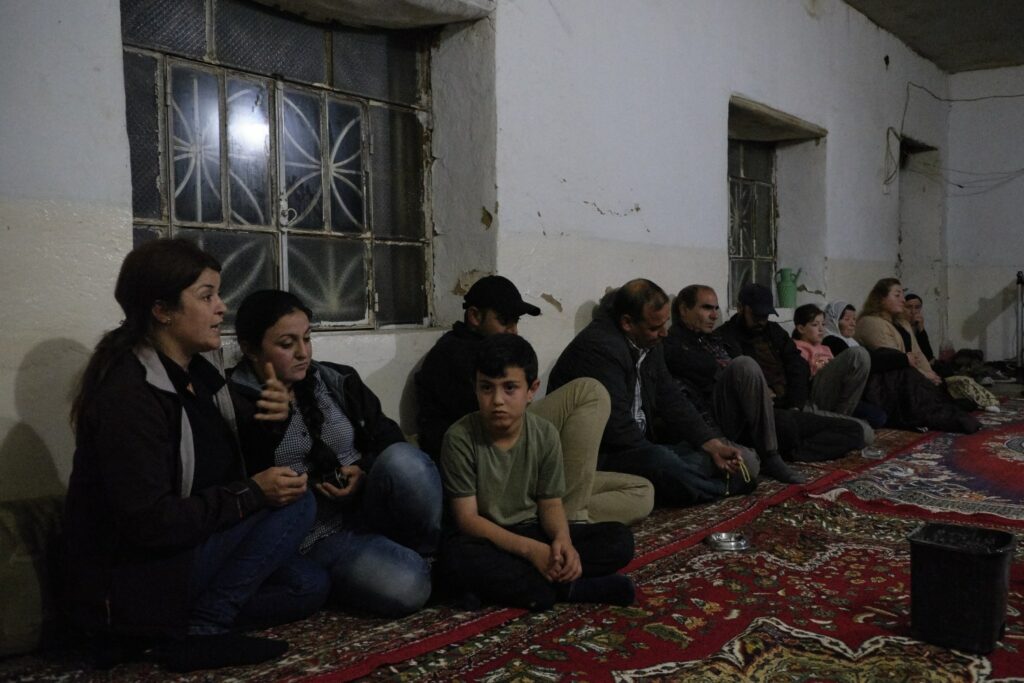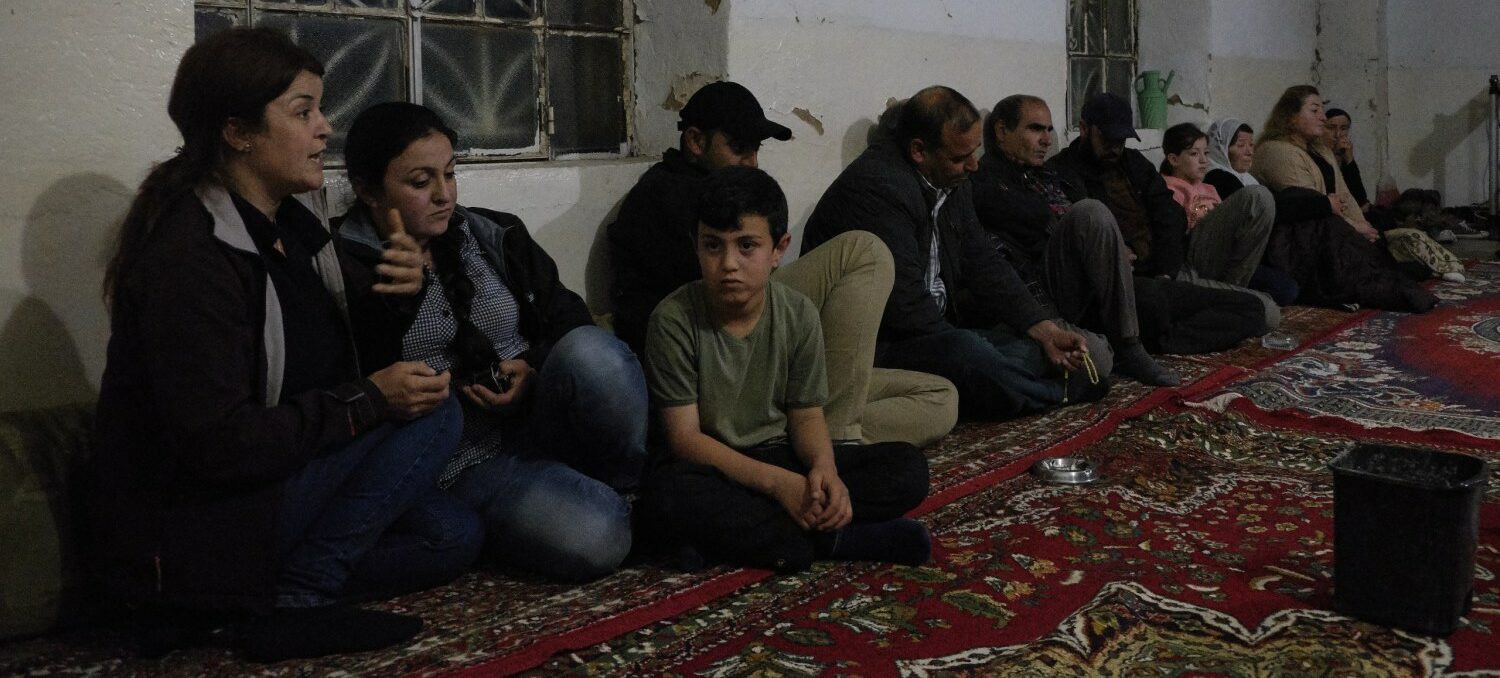Communes are the most basic unit of the political system of North and East Syria. They are established in Article 48 of the Social Contract, which defines the commune system as “the essential basic organizational form of direct democracy. It is a system that sets out an organizational and administrative framework within which to make decisions and management. It works as an independent body in all stages of decision making.” As well as acting as a democratic body, the commune also is the organization through which basic necessities are obtained and distributed. One of the earliest functions of communes was the pooling of resources to buy collective generators to provide electricity. Now they serve as an access point for subsidized diesel and bread, as well as the first port of call for many administrative issues.
The three core pillars of the communes are outlined as:
- Self-defense (xwe parastin): protection of the commune
- Education (perwerde): changing mentalities and empowering people
- Conflict resolution and consensus building (li-hevkirin): addressing conflicts within and between families, reconciliation or referral to relevant justice institutions
“In the beginning there were difficulties with the commune system – it’s a new system, and people don’t accept new things very quickly… People here saw the old system where everything came from the center, from Damascus, 700 or 800 km away. Orders came from there, without the input of the people… Sure, it’s necessary that we work together at the level of Syria, but each region has its own particularities, its own society, languages, cultures, religions and beliefs. Now the communes are being built up… they are resolving not just questions of bread and diesel, but personal questions, questions of religious beliefs, conflicting opinions, all kinds of things.”
Mohamed Said, PYD co-chair in Tel Tamer, 28 March 2019
Once these pillars have been established, the commune is able to act as a foundation of an autonomous economy. Co-operatives are developed from communes, with the ultimate aim being the emergence of a communal economy through pooling resources and joint investment. Communes have committees which focus on areas of work such as health, education, economy, self defense, reconciliation and other issues. The nine committees which are listed as the standard committees for all levels of the Autonomous Administration are:
- Self defense committee
- Education committee
- Reconciliation and Justice committee
- Women’s committee
- Youth (and Sport) committee
- Health committee
- Families of the Martyrs committee
- Arts and Culture committee
- Economy committee
Most communes have a handful of committees, though very few have all nine committees based on their needs and capacities. For example, rural areas are more likely to have agricultural committees and not all communes have an economy committee. However, each of these nine committees will exist in the councils of the higher levels of the administration.
“Women are co-chairs in the commune system, they are leaders in society, they act as counselors in conflict resolution processes. They sit on the committees of the communes: reconciliation, services, society and management. The Autonomous Administration cannot work without the involvement of women. On the social level and as regards self-defense the communes cannot work without women.”
Hediye Ahmed Abdallah, Self-Defense Commitee of the People’s Council of Derik district
Case Study: Carudi, a village commune
Carudi is a village in the countryside of Derik, sitting on the border with Turkey. It has an active commune which holds regular meetings and engages in collective activities. The residents of the village collectively manage some agricultural land, a ‘relaxation’ community garden with a fountain, fruit trees and flowers, and a herd of sheep and goats. They manage the collective fields according to co-operative principles, with most of the villagers donating time and labour to work the land, with the harvest shared between everyone. In recent years they have decided to grow ‘firik,’ a variety of wheat that is prepared via traditional methods involving burning the grain as it is harvested, giving the wheat a unique flavor. Carudi residents also organize trash-picking together to address complaints about rubbish accumulating in the common spaces of the village. Recently the commune decided to build a village community center, which is being constructed by the villagers themselves. All the families in the village are involved in these activities, regardless of political affiliation. This has involved a lot of work from a small number of active individuals who have repeatedly visited families in the village, organized meetings and encouraged people to participate. The results of this work are visible. Many families who otherwise express reserve about the new political system are enthusiastic about the tangible results produced by organizing as a commune.

This article is an excerpt from the Rojava Information Center report “Beyond the Frontlines – The building of the democratic system of North and East Syria”.

